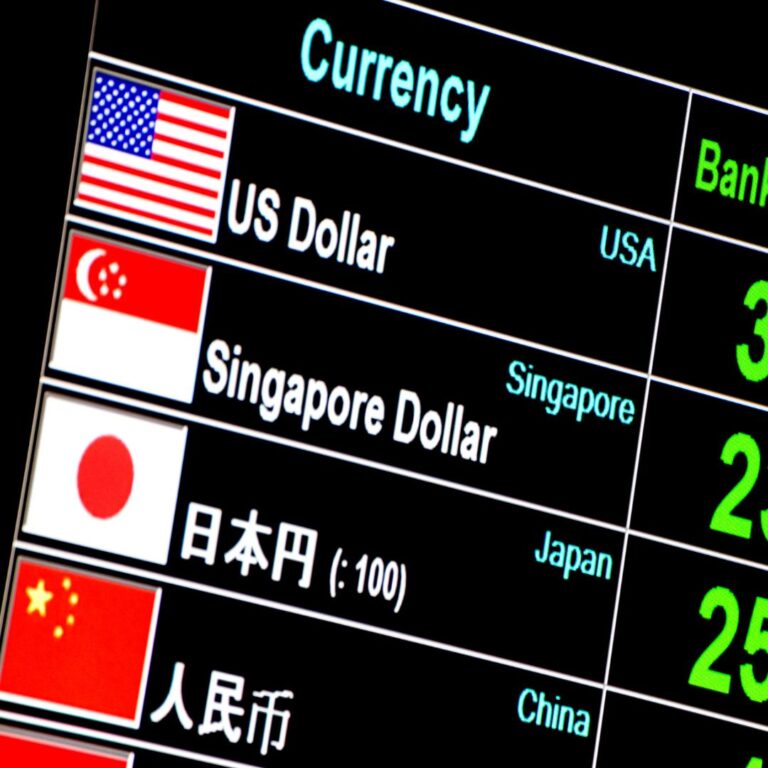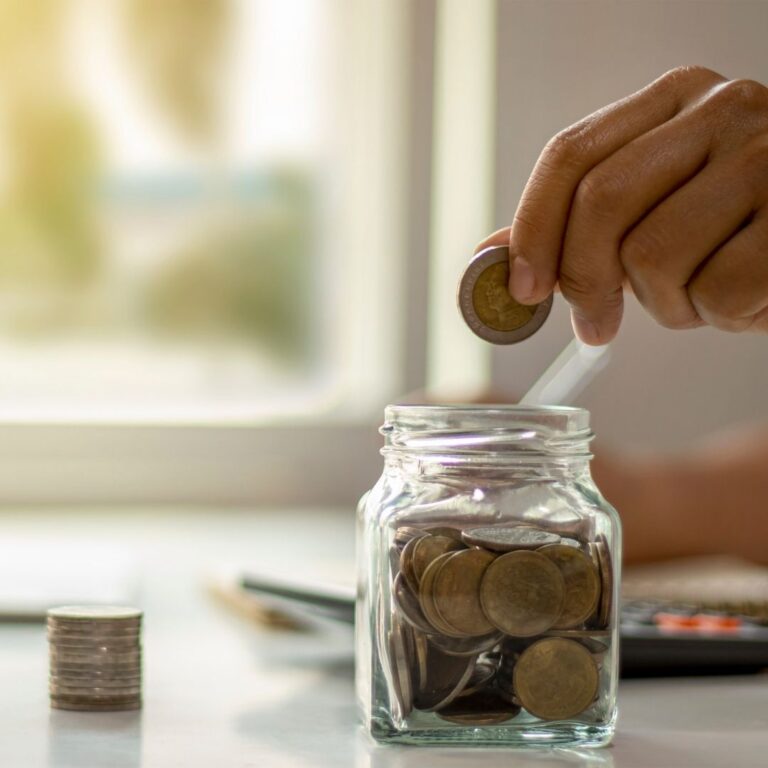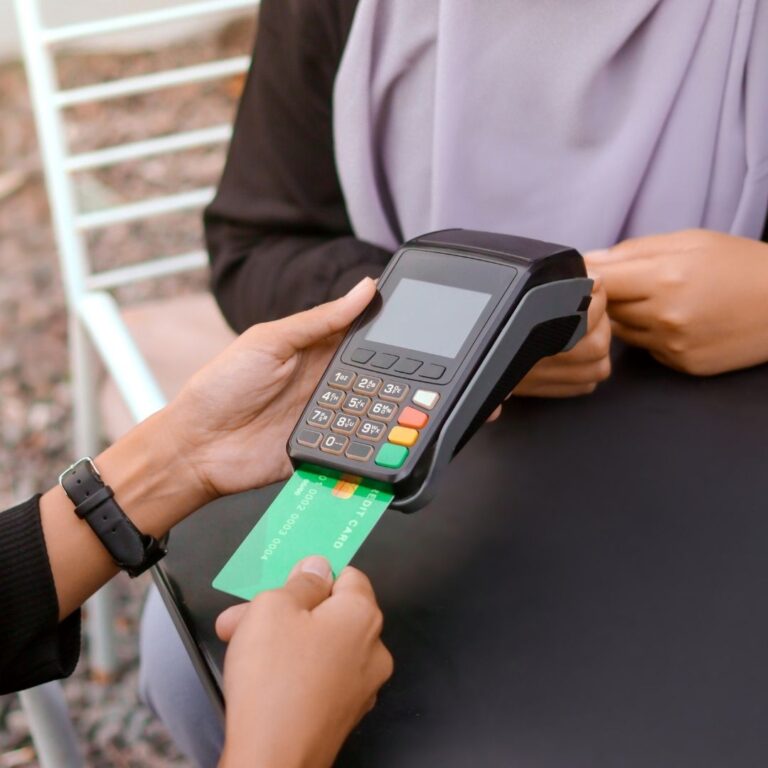Lesson 8: Services, Right People and Entrepreneurship
Introduction
In this article, we explore Lesson 8 of the Messenger Money Morals series which involves essential topics related to personal and business development, which are all inspired by Islamic teachings and principles. In the lesson, Mufti Faraz Adam discusses the characteristics of assets, services, and debts. He also shares the prophet’s way of dealing with other parties during transactions, and the prophet’s way of leadership. The lesson also focuses on the importance of having the right people around you in both business and leisure. Lastly, the lesson also elaborates on entrepreneurship.
Assets, Services, and Debts
The Features of a Service
- Intangibility
A property has tangibility or ‘existent intangibility’, where specifications can be seen before a contract. A service is a ‘non-existent intangible’ and cannot be gauged or judged before use. For instance, you can see and understand the features of a car; however, the utility and experience of using the car cannot fully be understood until after driving it.
- Perishability
Unused capacity of services cannot be stored for future use and sold at another time. For example, a service such as a 1 month of free gym access that has only been used for two days; the remaining days cannot be stored and carried over to a later date.
On the other hand, in a scenario of a product where there is a purchase of five bags of charcoal and only two have been used, the remaining three can be stored and used at a later date.
- Inseparability
Services are delivered/provided and consumed simultaneously. Delivery and use happen at the same time, unlike products that can be delivered at one point and used later. For instance, massaging is a service that must be delivered and consumed together and cannot be separated, unlike buying a laptop that can be purchased and used later.
- Variability/Heterogeneity
Property can be standardised whereas services cannot be 100% standardized. While a product like the iPhone is the same worldwide, the service and experience when visiting the same store brand but in two different branches in different countries may not be 100% similar.
Debt
A debt is a claim, intangible, and exists only in the conscience of the debtor, recorded on the creditor’s books. It is inseparable from the debtor, unlike assets or services that can be independent from people. If a bank sells its debt at a discount to another fund, the debtor is still responsible for paying back the loan. Debt usually includes interest (riba) in conventional banks, which is considered unlawful in Shariah rulings.
The Prophetic Way of Dealing
The Prophet’s Dealings:
حَدَّثَنَا مُحَمَّدُ بْنُ بَشَّارٍ، حَدَّثَنَا عَبْدُ الْوَهَّابِ، حَدَّثَنَا عُبَيْدُ اللَّهِ، عَنْ وَهْبِ بْنِ كَيْسَانَ، عَنْ جَابِرِ بْنِ عَبْدِ اللَّهِ ـ رضى الله عنهما ـ قَالَ كُنْتُ مَعَ النَّبِيِّ صلى الله عليه وسلم فِي غَزَاةٍ، فَأَبْطَأَ بِي جَمَلِي وَأَعْيَا، فَأَتَى عَلَىَّ النَّبِيُّ صلى الله عليه وسلم فَقَالَ ” جَابِرٌ ”. فَقُلْتُ نَعَمْ. قَالَ ” مَا شَأْنُكَ ”. قُلْتُ أَبْطَأَ عَلَىَّ جَمَلِي وَأَعْيَا، فَتَخَلَّفْتُ. فَنَزَلَ يَحْجُنُهُ بِمِحْجَنِهِ، ثُمَّ قَالَ ” ارْكَبْ ”. فَرَكِبْتُ، فَلَقَدْ رَأَيْتُهُ أَكُفُّهُ عَنْ رَسُولِ اللَّهِ صلى الله عليه وسلم قَالَ ” تَزَوَّجْتَ ”. قُلْتُ نَعَمْ. قَالَ ” بِكْرًا أَمْ ثَيِّبًا ”. قُلْتُ بَلْ ثَيِّبًا. قَالَ ” أَفَلاَ جَارِيَةً تُلاَعِبُهَا وَتُلاَعِبُكَ ”. قُلْتُ إِنَّ لِي أَخَوَاتٍ، فَأَحْبَبْتُ أَنْ أَتَزَوَّجَ امْرَأَةً تَجْمَعُهُنَّ، وَتَمْشُطُهُنَّ، وَتَقُومُ عَلَيْهِنَّ. قَالَ ” أَمَّا إِنَّكَ قَادِمٌ، فَإِذَا قَدِمْتَ فَالْكَيْسَ الْكَيْسَ ”. ثُمَّ قَالَ ” أَتَبِيعُ جَمَلَكَ ”. قُلْتُ نَعَمْ. فَاشْتَرَاهُ مِنِّي بِأُوقِيَّةٍ، ثُمَّ قَدِمَ رَسُولُ اللَّهِ صلى الله عليه وسلم قَبْلِي، وَقَدِمْتُ بِالْغَدَاةِ، فَجِئْنَا إِلَى الْمَسْجِدِ، فَوَجَدْتُهُ عَلَى باب الْمَسْجِدِ، قَالَ ” الآنَ قَدِمْتَ ”. قُلْتُ نَعَمْ. قَالَ ” فَدَعْ جَمَلَكَ، فَادْخُلْ فَصَلِّ رَكْعَتَيْنِ ”. فَدَخَلْتُ فَصَلَّيْتُ، فَأَمَرَ بِلاَلاً أَنْ يَزِنَ لَهُ أُوقِيَّةً. فَوَزَنَ لِي بِلاَلٌ، فَأَرْجَحَ فِي الْمِيزَانِ، فَانْطَلَقْتُ حَتَّى وَلَّيْتُ فَقَالَ ” ادْعُ لِي جَابِرًا ”. قُلْتُ الآنَ يَرُدُّ عَلَىَّ الْجَمَلَ، وَلَمْ يَكُنْ شَىْءٌ أَبْغَضَ إِلَىَّ مِنْهُ. قَالَ ” خُذْ جَمَلَكَ وَلَكَ ثَمَنُهُ ”.
Narrated Jabir bin `Abdullah:
I was with the Prophet (ﷺ) in a Ghazwa (Military Expedition) and my camel was slow and exhausted. The Prophet came up to me and said, “O Jabir.” I replied, “Yes?” He said, “What is the matter with you?” I replied, “My camel is slow and tired, so I am left behind.” So, he got down and poked the camel with his stick and then ordered me to ride. I rode the camel and it became so fast that I had to hold it from going ahead of Allah’s Messenger (ﷺ). He then asked me, have you got married?” I replied in the affirmative. He asked, “A virgin or a matron?” I replied, “I married a matron.” The Prophet (ﷺ) said, “Why have you not married a virgin so that you may play with her and she may play with you?” Jabir replied, “I have sisters (young in age) so I like to marry a matron who could collect them all and comb their hair and look after them.” The Prophet (ﷺ) said, “You will reach, so when you have arrived (at home), I advise you to associate with your wife (that you may have an intelligent son).” Then he asked me, “Would you like to sell your camel?” I replied in the affirmative and the Prophet (ﷺ) purchased it for one Uqiya of gold. Allah’s Messenger (ﷺ) reached before me and I reached in the morning, and when I went to the mosque, I found him at the door of the mosque. He asked me, “Have you arrived just now?” I replied in the affirmative. He said, “Leave your camel and come into (the mosque) and pray two rak`at.” I entered and offered the prayer. He told Bilal to weigh and give me one Uqiya of gold. So Bilal weighed for me fairly and I went away. The Prophet (ﷺ) sent for me and I thought that he would return to me my camel which I hated more than anything else. But the Prophet (ﷺ) said to me, “Take your camel as well as its price.” (Sahih al-Bukhari 2097)
In this hadith in Sahih al-Bukhari, Jabir bin `Abdullah narrated how the Prophet Muhammad (ﷺ) helped him during an expedition. Jabir’s camel had become exhausted, so the Prophet (ﷺ) touched it with his stick and suddenly it became faster. They then had a conversation about Jabir’s recent marriage, where the Prophet (ﷺ) encouraged him to care for his family. Afterward, the Prophet (ﷺ) bought Jabir’s camel and gave him its price in gold but later gifted him back the camel as well. This act of kindness shows the Prophet’s (ﷺ) leadership, generosity, and care.
Having the Right People Around You in Business and Leisure
A hadith in Sahih al-Bukhari illustrates the value of good company:
حَدَّثَنِي مُوسَى بْنُ إِسْمَاعِيلَ، حَدَّثَنَا عَبْدُ الْوَاحِدِ، حَدَّثَنَا أَبُو بُرْدَةَ بْنُ عَبْدِ اللَّهِ، قَالَ سَمِعْتُ أَبَا بُرْدَةَ بْنَ أَبِي مُوسَى، عَنْ أَبِيهِ ـ رضى الله عنه ـ قَالَ قَالَ رَسُولُ اللَّهِ صلى الله عليه وسلم “ مَثَلُ الْجَلِيسِ الصَّالِحِ وَالْجَلِيسِ السَّوْءِ كَمَثَلِ صَاحِبِ الْمِسْكِ، وَكِيرِ الْحَدَّادِ، لاَ يَعْدَمُكَ مِنْ صَاحِبِ الْمِسْكِ إِمَّا تَشْتَرِيهِ، أَوْ تَجِدُ رِيحَهُ، وَكِيرُ الْحَدَّادِ يُحْرِقُ بَدَنَكَ أَوْ ثَوْبَكَ أَوْ تَجِدُ مِنْهُ رِيحًا خَبِيثَةً ”.
Narrated Abu Musa:
Allah’s Messenger (ﷺ) said, “The example of a good companion (who sits with you) in comparison with a bad one, is like that of the musk seller and the blacksmith’s bellows (or furnace); from the first you would either buy musk or enjoy its good smell while the bellows would either burn your clothes or your house, or you get a bad nasty smell thereof.” (Sahih al-Bukhari 2101)
This hadith emphasizes the importance of surrounding yourself with the right people who will bring good influence.
Good to Great
In this lesson, Mufti Faraz explains a key concept from the book Good to Great. The key concept is “First Who, Then What – get the right people on the bus”. The concept states that those who build great organisations make sure to have the right people on the bus and the right people on the key seats before they figure out where to drive the bus. In the face of uncertainty, it is unpredictable what is to come, therefore, the best strategy is to have the right busload of people who can adapt, thrive, and perform brilliantly no matter what challenges arise. If you have the right people, they will deliver excellent results, not because of what they will “get” but because of their inner drive to achieve greatness. The best people will do what’s right regardless of external rewards. This is how companies can be from good to great with the right people in a team.
Entrepreneurship
Hadith Regarding the Prophet Dawud/David
حَدَّثَنَا إِبْرَاهِيمُ بْنُ مُوسَى، أَخْبَرَنَا عِيسَى، عَنْ ثَوْرٍ، عَنْ خَالِدِ بْنِ مَعْدَانَ، عَنِ الْمِقْدَامِ ـ رضى الله عنه ـ عَنْ رَسُولِ اللَّهِ صلى الله عليه وسلم قَالَ “ مَا أَكَلَ أَحَدٌ طَعَامًا قَطُّ خَيْرًا مِنْ أَنْ يَأْكُلَ مِنْ عَمَلِ يَدِهِ، وَإِنَّ نَبِيَّ اللَّهِ دَاوُدَ ـ عَلَيْهِ السَّلاَمُ ـ كَانَ يَأْكُلُ مِنْ عَمَلِ يَدِهِ ”.
Narrated Al-Miqdam:
The Prophet (ﷺ) said, “Nobody has ever eaten a better meal than that which one has earned by working with one’s own hands. The Prophet (ﷺ) of Allah, David used to eat from the earnings of his manual labor.” (Sahih al-Bukhari 2072)
This hadith highlights the value of working with your hands and earning a livelihood independently.
Companions of the Prophet
حَدَّثَنِي مُحَمَّدٌ، حَدَّثَنَا عَبْدُ اللَّهِ بْنُ يَزِيدَ، حَدَّثَنَا سَعِيدٌ، قَالَ حَدَّثَنِي أَبُو الأَسْوَدِ، عَنْ عُرْوَةَ، قَالَ قَالَتْ عَائِشَةُ ـ رضى الله عنها ـ كَانَ أَصْحَابُ رَسُولِ اللَّهِ صلى الله عليه وسلم عُمَّالَ أَنْفُسِهِمْ، وَكَانَ يَكُونُ لَهُمْ أَرْوَاحٌ فَقِيلَ لَهُمْ لَوِ اغْتَسَلْتُمْ. رَوَاهُ هَمَّامٌ عَنْ هِشَامٍ عَنْ أَبِيهِ عَنْ عَائِشَةَ.
Narrated Aisha:
The companions of Allah’s Messenger (ﷺ) used to practice manual labor, so their sweat used to smell, and they were advised to take a bath. (Sahih al-Bukhari 2071)
The companions of the Messenger (ﷺ) used to do intense labour and would often work for themselves and get very sweaty that they would be advised to take baths. This shows the emphasis on hard work.
Independence and Earning Your Income
حَدَّثَنَا يَحْيَى بْنُ بُكَيْرٍ، حَدَّثَنَا اللَّيْثُ، عَنْ عُقَيْلٍ، عَنِ ابْنِ شِهَابٍ، عَنْ أَبِي عُبَيْدٍ، مَوْلَى عَبْدِ الرَّحْمَنِ بْنِ عَوْفٍ أَنَّهُ سَمِعَ أَبَا هُرَيْرَةَ ـ رضى الله عنه ـ يَقُولُ قَالَ رَسُولُ اللَّهِ صلى الله عليه وسلم “ لأَنْ يَحْتَطِبَ أَحَدُكُمْ حُزْمَةً عَلَى ظَهْرِهِ خَيْرٌ مِنْ أَنْ يَسْأَلَ أَحَدًا، فَيُعْطِيَهُ أَوْ يَمْنَعَهُ ”.
Narrated Abu Huraira: Allah’s Messenger (ﷺ) said, “No doubt, it is better for any one of you to cut a bundle of wood and carry it over his back rather than to ask someone who may or may not give him.” (Sahih al-Bukhari 2074)
This hadith teaches us the dignity of earning an honest living.
Strategy for Entrepreneurship
In this lesson, Mufti Faraz also shares strategies for entrepreneurship. The following steps are:
Step One: Begin with employment. This provides financial stability and gives experience and education in trading and business.
Step Two: Continue to read, study, and learn. This develops creativity and a problem-solving mindset.
Step Three: Develop a passion and an eye to solve problems or fill a gap. This gives an analysis of the status quo and pain points.
Step Four: Start a side gig and hustle in an attempt to solve a problem. This helps test the hypothesis and theory developed in Step Three.
Step Five: Evaluate the side gig. At this stage, an entrepreneur can start exploring the product-market fit.
Step Six: Business strategy and plan. When a product or service gains traction, it is time to strategize and plan for its growth.
Conclusion
This article explores the importance of ethical interactions and surrounding ourselves with the right people. It shows lessons from the Prophet Muhammad’s (ﷺ) kindness and fairness in transactions, which offers guidance for both life and business dealings. The article emphasizes that ethics, good company, and determination are essential for achieving both personal and professional growth.
Written by Nafisah Yusra Abdul Rahim.
Notes taken by Nafisah Yusra Abdul Rahim from ‘Messenger Money Morals – Services, Right People, and Entrepreneurship’.
Lesson 7: Trade Goods, Payment, and Payment Ethics in Islamic Finance








